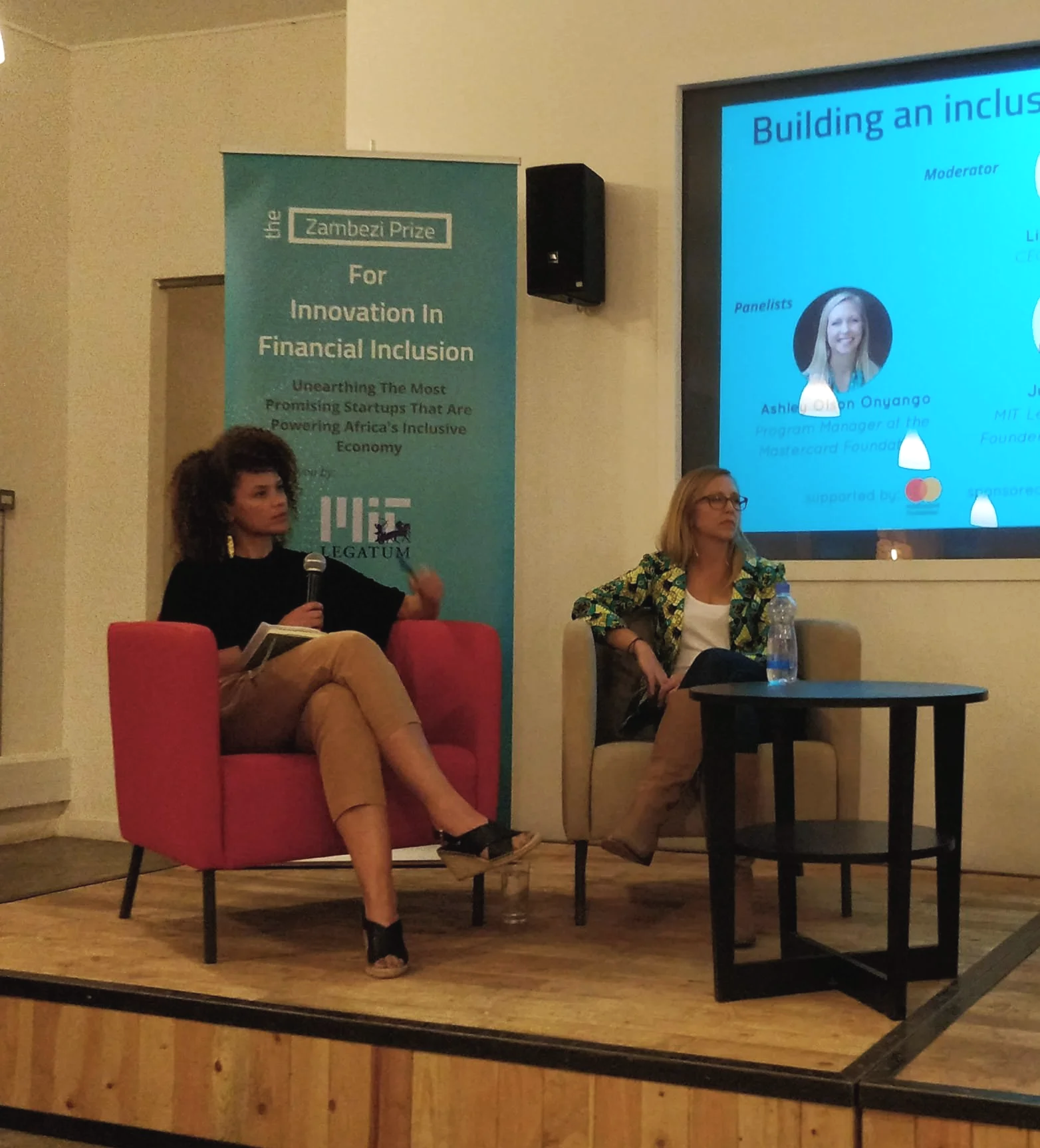Inclusive Teams Build Inclusive Ecosystems
Lisa, Principal of CR (Left) and Ashley Olsen Onyango (Right) participating in the MIT panel on Inclusive Ecosystems.
Occasionally Google sends you a picture reminder, a few days ago I received this reminder - I was leading a panel discussion for MIT with guests including Ashley Olsen Onyango, then senior program manager at Mastercard Foundation. The conversation was titled “Building Inclusive Ecosystems” as it relates to financial inclusion. The conversation was focused on joining the dots within financial systems to make banking more inclusive, topics such as bridging the gap between lack of identification and access to financial services, credit scoring gaps and so on. At CR we ask this question every day, not just as it relates to financial inclusion but across sectors. How do we build inclusive ecosystems? Our focus extends beyond products and services, we also ask who are the people creating those products and services?
Affinity bias is something we are all guilty of, we like to work with people like us - similar cultural background, ethnicity, race, gender and so on. The result is an echo chamber - a reflection of the same lived experience. As such CR has fostered an innovation process through a lens of inclusivity. Not just because it is the right thing to do but because to come up with truly game changing ideas and innovations, you need to accommodate different perspectives and lived experiences.
Ford’s Men’s Only Car Advert for International Women’s Day 2023
I’m not sure if any of you remember Ford’s “Men Only” advert that was released on International Women’s Day a few years ago. The voice over narrated the amazing features of a “new” car. Stressing that the features would only include elements of the car designed by men, for men. As a result the car started losing vital features; windshield wipers, turn signals, and the car’s GPS. Confronted with a car that now lacked women’s contributions, the narrator asks, in a concerned tone “Whose great idea was this?” The advert highlights a really simple truth, when we bring together talented people from many different groups, we get results that benefit everyone. What can sometimes get lost in the inclusion conversation is how diverse teams unlock new avenues for innovation. Have we considered the voice of someone with a disability visible or invisible? Have we considered literacy in different contexts, including technological literacy? For truly helpful or impactful innovation, people who understand or have experience with the problem they are trying to solve are our greatest asset.
In our strategy workshops we challenge organisations to look at problems differently, to seek the opinion and perspective of people they wouldn’t normally engage with, either bringing together different departments or outside perspectives. The results are always remarkable, we know this works but it sometimes still catches us off guard just how good it can be - fresh ideas, new perspectives and solutions. To quote Chistine Hà, the winner of Master Chef who became progressively blind as an adult, “how can I know what colour a lipstick is, if the colour is called LSD?!” A fully sighted person was likely behind the lipstick naming and is unlikely to have considered this limitation. Why are we only trying to solve problems for people like us and not including the Christine Hà’s of the world? By lack of representation we exclude her by omission.
This example of Christine Hà’s experience is one of many examples of the missed opportunities that come from exclusion. If I refer back to the conversation that started this piece, the panel discussion was about creating products and services to enable a frictionless environment for un/underbanked segments of society - which was an important conversation of that time. What we at CR are saying is that as an organisation looking for new opportunities or solutions to difficult problems - who has a voice in those teams? In echo chambers, novel ideas are stifled. Are we missing out on opportunities for new technologies, tools and services because the room has been built on affinity bias?
It is, therefore, shocking to me that around the world companies and organisations are rolling back DEI initiatives, a recent McKinsey report is showing the adverse effects of this scaling back of policy. How can creating a table, room or institution of diverse thinkers be a bad thing? If anything it is shortsighted to view this as unimportant in the face of our current global challenges. As we grapple with unprecedented new technologies, the climate crisis, and a challenging global economic climate, how can we afford not to put as many heads together in order to chart the best course forward, to leave a better planet and society to the next generation than the one we have today.


